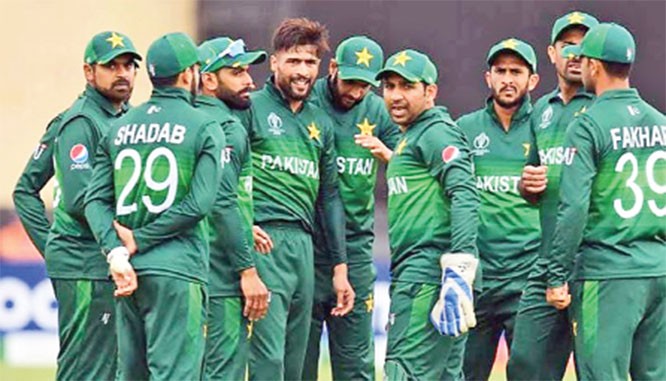
Dismissing the captain, the coaches or dropping some players will not have far-reaching results. We need to get rid of the bureaucracy in the board

The tag of unpredictably has stuck Pakistan cricket for years. As a die-hard fan you are always unsure and doubtful of what will happen to their performance -- up in one match and down in the next. One game you see Pakistan rattle up the opposition like wind but next game you see them presenting a comedy of errors, dropping catches, giving away wickets cheaply and allowing the opposition to get back into the game.
Though Pakistan team won their last four matches, defeating New Zealand, Bangladesh and South Africa but New Zealand sneaked to the semi-final on superior net run rate.
This has been the case for Pakistan in major ICC events. They are dependent on the result of other teams matches. They improve their performance after severe criticism and at a time when the ship has almost sunk.
Pakistan cricket will remain vulnerable until and unless we improve our cricket system from the grassroots level to first class cricket.
The way Australia and India have been playing with consistency and have qualified to the semi-finals with ease shows how good their whole system is. A team gains consistency and adaptability on the back of a strong, professional cricket system.
We need to bring more competent people in our cricket board rather than having age-old rookies who don’t have the understanding of modern-day cricket.
There is always a hue and cry after every ICC event failure. The captain is sacked and there is talk of dismantling the system. But eventually we see the same old people destroying Pakistan cricket.
The prime reason for Australia’s recent rise after a short slump is their strong system which Imran Khan wants to implement in Pakistan.
They have determined people working in their board who have the knowledge of modern-day cricket.
Indian players’ mentality has changed because they have introduced a very strong first class structure and appointed people like Rahul Dravid and Ravi Shastri as coaches who have the knowledge about the demands of modern-day cricket.
New Zealand’s surge to the top during the last five to six years has been due to the professional cricket system they have.
These boards have people working with devotion and sincerity knowing that they are working for a cause and their decisions will impact the future of young players. But in Pakistan the same people have remained glued to the board, in one important seat or another, working only for their personal perks. They are never worried about Pakistan cricket. They are always worrying about losing their lucrative jobs.
It is time these old giants were thrown out. A whole cleanup operation is needed from Wasim Khan and Ehsan Mani to save the future of Pakistan cricket. Otherwise, the day is not far away when Pakistan might lose to Afghanistan or Scotland. We have already seen our team beating a team like Afghanistan only in the last over.
There have been some positive changes, however. One of them is the sacking of 70-year-old Shafiq Ahmed and Sabih Azhar.
Then Pakistan’s Under-19 team trounced South Africa 7-0 in a one-day series in their own backyard.
The credit for this goes to Mani and Wasim for arranging the tour of South Africa because Pakistan Under-19s usually play in the Asian countries.
Certainly it is the result of an eight-week Under-19 regional programme. This time such neglected regions as Azad Jammu and Kashmir, Larkana, Abbottabad, Waziristan, and Hyderabad have also been given due importance.
The players in this programme go through high-quality exercise, batting, bowling and fielding drills. Video analyses are also used. Lectures are given to the players so they are groomed in every aspect.
Though Imran Khan’s model of domestic cricket will invite a lot of criticism, it will provide players from all over Pakistan chances to showcase their talent through one-day and T20 tournaments as well as a three-day non-first class tournament.
I think the Under-23 programme which includes 48 zones will be a major development at the grassroots level because zonal cricketers usually do not get quality matches.
In my opinion this system is far better than Najam Sethi’s one wherein main regions such as Karachi, Abbottabad and Sialkot were relegated.
It is time to take brave decisions that can bring about long-term changes. Otherwise we might see the downfall of cricket just as happened in hockey and squash.
With provincial teams playing in Quaid-e-Azam Trophy, we might see the involvement of local people.
intikhab3@gmail.com